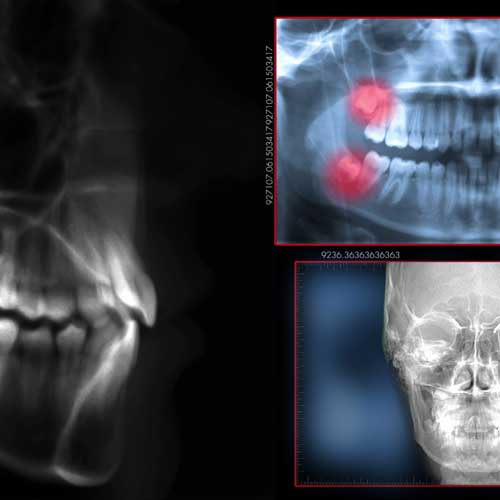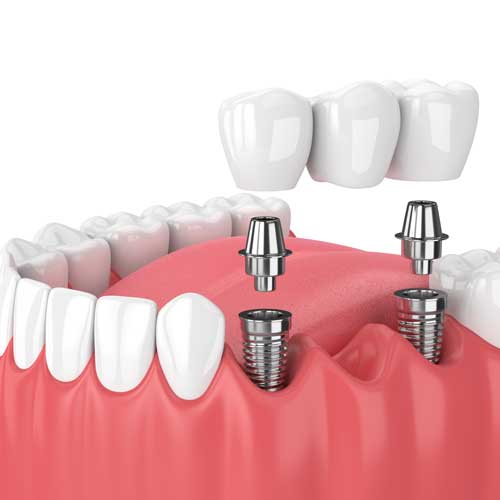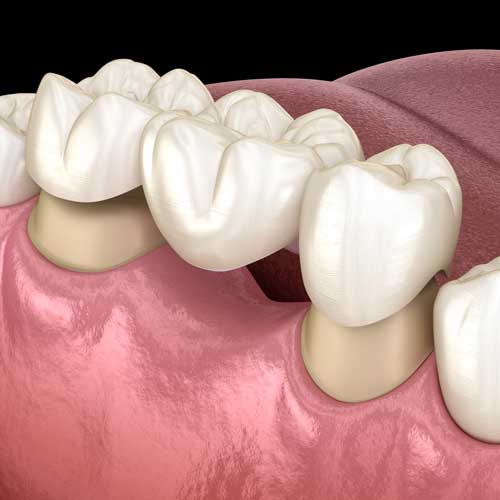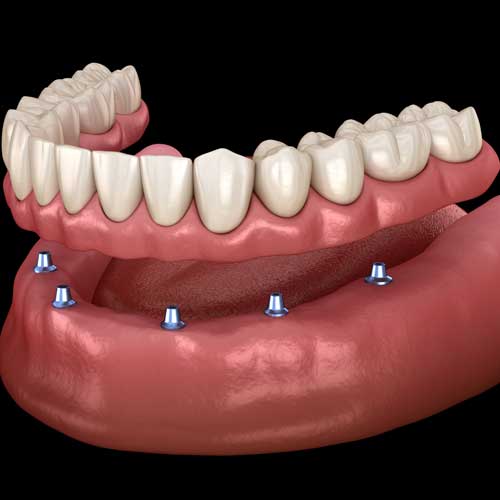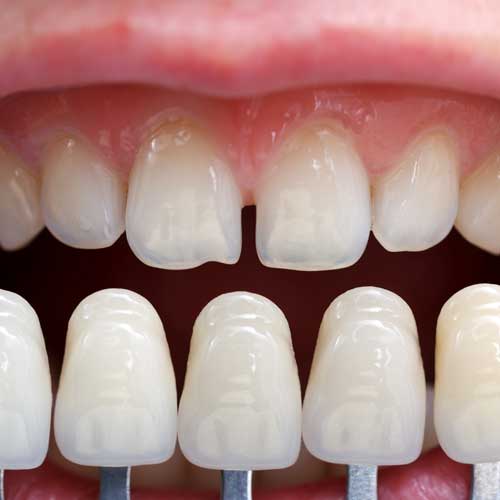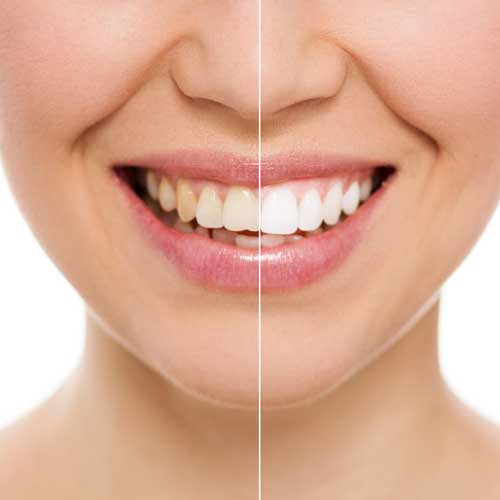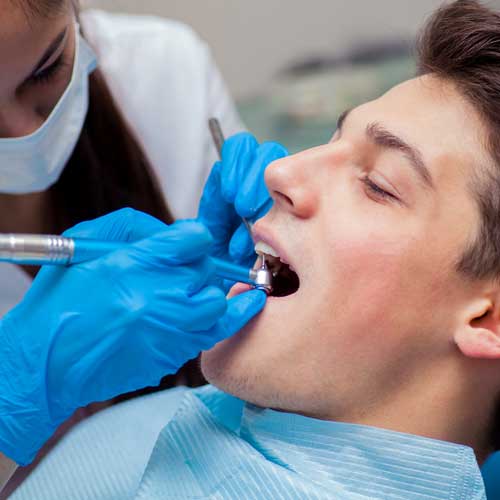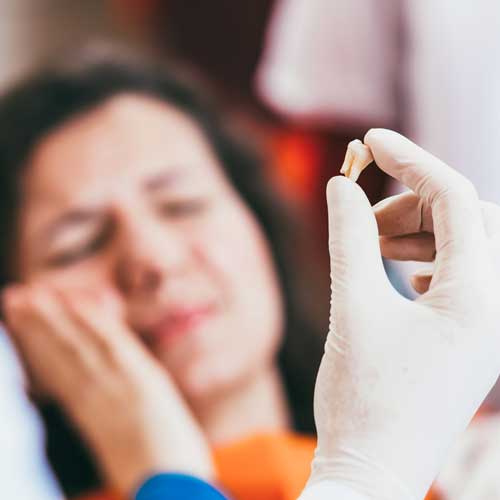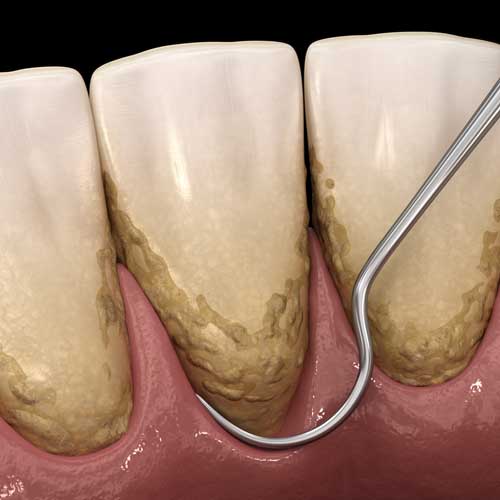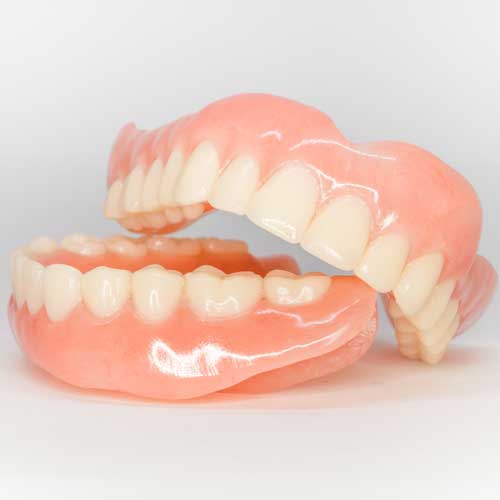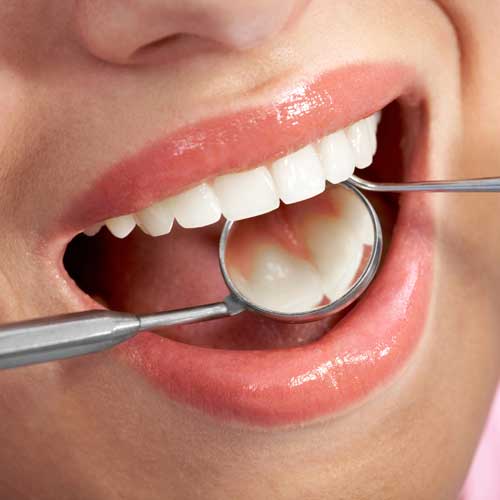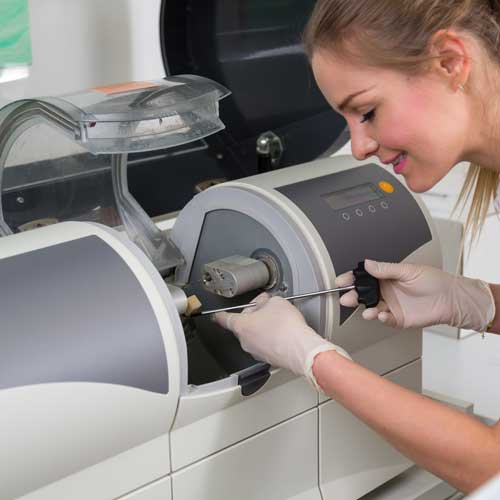Sensitive Teeth
If you wince with pain after sipping a hot cup of coffee or chewing a piece of ice, chances are that you suffer from “dentin hypersensitivity,” or more commonly, sensitive teeth.
Hot and cold temperature changes cause your teeth to expand and contract. Over time, your teeth can develop microscopic cracks that allow these sensations to seep through to the nerves. Exposed areas of the tooth can cause pain and even affect or change your eating, drinking and breathing habits.
At least 45 million adults in the United States suffer at some time from sensitive teeth.
Sensitive teeth result when the underlying layer of your teeth (the dentin) becomes exposed. This can happen on the chewing surface of the tooth as well as at the gum line. In some cases, sensitive teeth are the result of gum disease, years of unconsciously clenching or grinding your teeth, or improper or too vigorous brushing (if the bristles of your toothbrush are pointing in multiple directions, you’re brushing too hard).
Abrasive toothpastes are sometimes the culprit of sensitive teeth. Ingredients found in some whitening toothpastes that lighten and/or remove certain stains from enamel, and sodium pyrophosphate, the key ingredient in tartar-control toothpastes, may increase tooth sensitivity.
In some cases, desensitizing toothpaste, sealants, desensitizing ionization and filling materials including fluoride, and decreasing the intake of acid-containing foods can alleviate some of the pain associated with sensitive teeth.
Sometimes, a sensitive tooth may be confused by a patient for a cavity or abscess that is not yet visible.
In any case, contact your dentist if you notice any change in your teeth’s sensitivity to temperature.
















